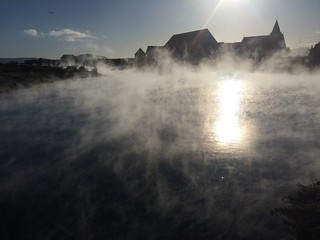The Hour of Code is an international event aimed at introducing students and teachers to coding while demystifying the concept of coding and teaching them some basics. The idea is to expose students to at least one hour of coding which many consider a new literacy and an essential skill for the future.
I'm a strong supporter of coding as a literacy, maths and thinking tool; so I organised an 'Hour of Code' for all the classes at my school. As we have a computer suite next to the library I arranged for every class to be booked in the computer suite in their library time and had the student led puzzles shown above loaded, as most teachers had no idea about coding. The three puzzles were based on popular games and movies and guided students to code using the Scratch block format.
The interesting part was not only did more students have fun learning to code for the first time but I spotted many teachers engrossed in the coding puzzles too. Now that's what I call success; planting the seeds of coding curiosity. Below is some of the student's feedback.

I'm a strong supporter of coding as a literacy, maths and thinking tool; so I organised an 'Hour of Code' for all the classes at my school. As we have a computer suite next to the library I arranged for every class to be booked in the computer suite in their library time and had the student led puzzles shown above loaded, as most teachers had no idea about coding. The three puzzles were based on popular games and movies and guided students to code using the Scratch block format.
The interesting part was not only did more students have fun learning to code for the first time but I spotted many teachers engrossed in the coding puzzles too. Now that's what I call success; planting the seeds of coding curiosity. Below is some of the student's feedback.






















